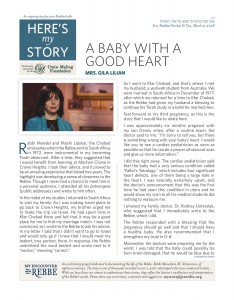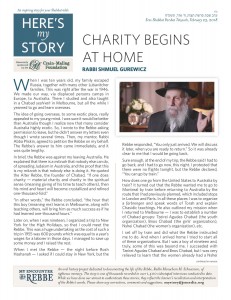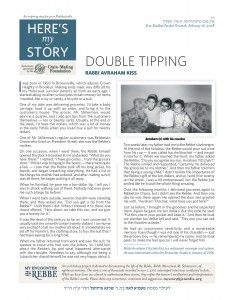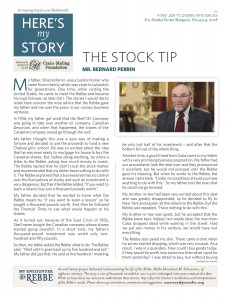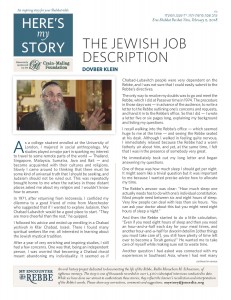A Baby with a Good Heart
Rabbi Mendel and Mashi Lipskar, the Chabad emissaries whom the Rebbe sent to South Africa in 1972, were instrumental in my becoming Torah observant. After a time, they suggested that I would benefit from learning at Machon Chana in Crown Heights. I took their advice, and it proved to be an amazing experience that lasted two years. The highlight was developing a sense of closeness to the Rebbe. Though I never had a chance to meet him in a personal audience, I attended all his farbrengens (public addresses) and wrote to him often.
In the midst of my studies I returned to South Africa to visit my family. As I was making travel plans to go back to Crown Heights, my brother urged me to make the trip via Israel. He had spent time in Kfar Chabad there and felt that it may be a good place for me to find my marriage match. I was not convinced, so I wrote to the Rebbe to ask his advice. In my letter I
said that I didn’t want to go to Israel and would only go if I knew that I would meet my beshert (true partner) there. In response, the Rebbe underlined the word beshert and wrote next to it “nachon,” meaning “correct.”
So I went to Kfar Chabad, and that’s where I met my husband, a yeshivah student from Australia. We were married in South Africa in December of 1977, after which we returned for a time to Kfar Chabad, as the Rebbe had given my husband a blessing to continue his Torah study in a kollel for married men.
Fast forward to my third pregnancy, as this is the story that I would like to relate here.
I was approximately six months pregnant with my son Danny when, after a routine exam, the doctor said to me: “I’m sorry to tell you, but there is something wrong with your baby’s heart. I would like you to see a cardiac pediatrician as soon as possible so that he can do a proper ultrasound scan and give us more information.”
I did this right away. The cardiac pediatrician said that the baby had a very serious condition called “Fallot’s Tetralogy,” which includes four significant heart defects, one of them being a large hole in the heart. I was naturally extremely upset, and the doctor’s announcement that this was the first time he had seen this condition in utero and he would show my scan to all his medical students did nothing to reassure me.
I phoned my family doctor, Dr. Rodney Unterslak, who suggested that I immediately write to the Rebbe, which I did. (more…)


